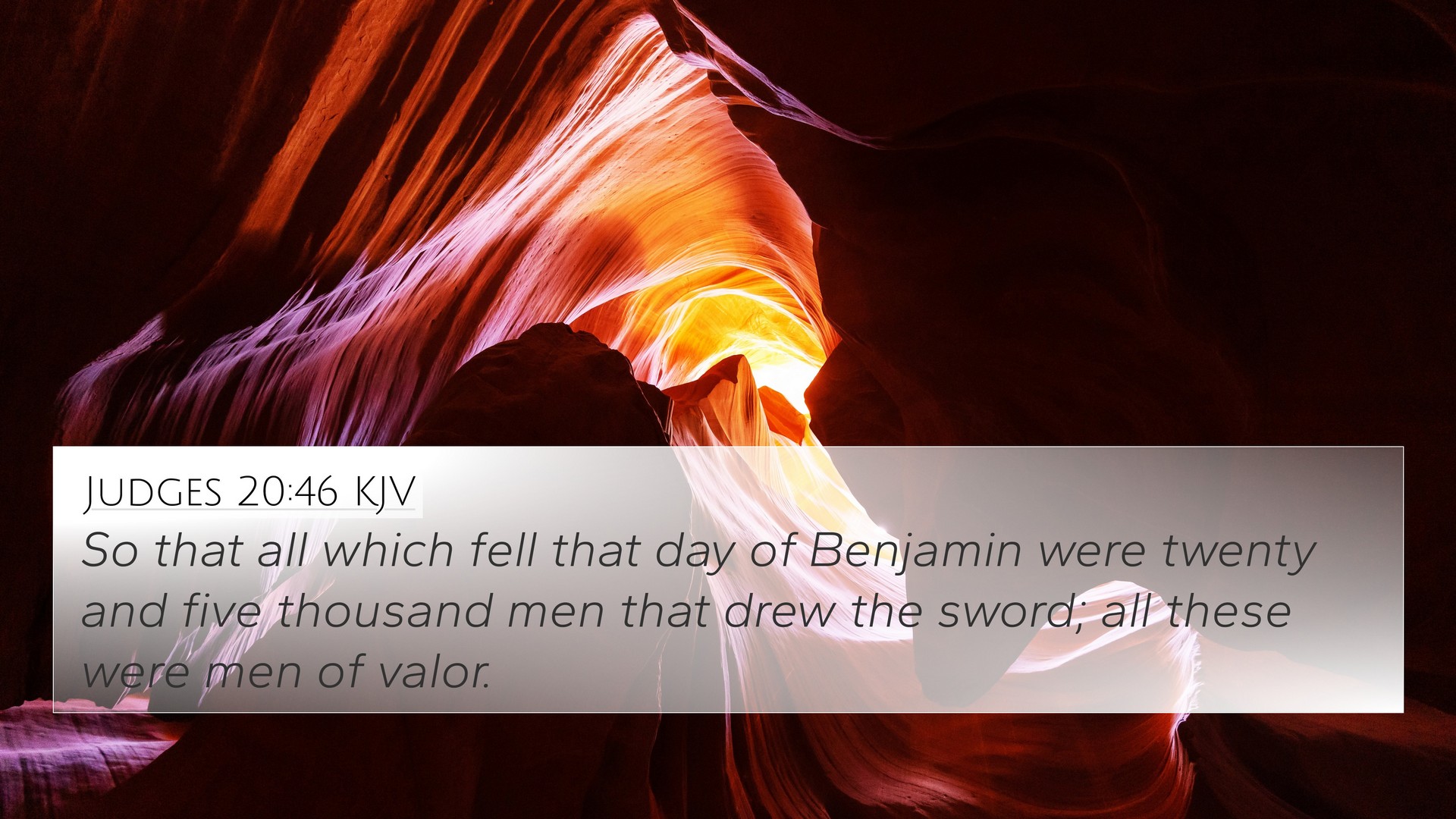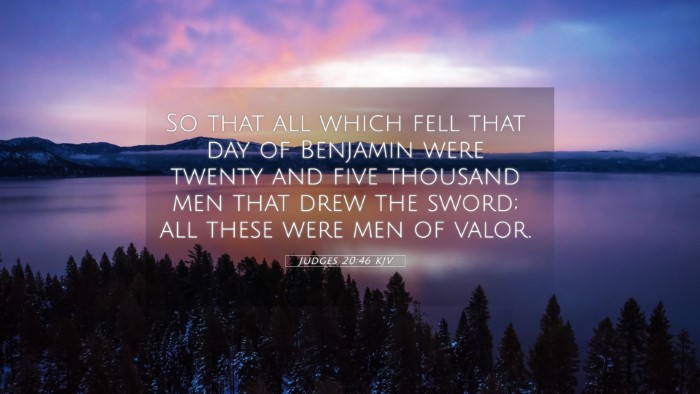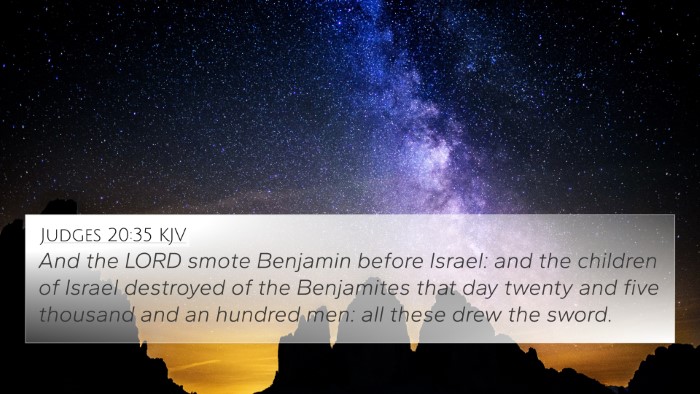Understanding Judges 20:46
Judges 20:46: "So that all which fell that day of Benjamin were twenty and five thousand men that drew the sword; all these were men of valour."
Introduction to the Verse
This verse concludes a grim episode in the Book of Judges, specifically detailing the brutal civil war between the tribe of Benjamin and the other Israelite tribes. It highlights the heavy toll of warfare, both in terms of lives lost and the moral consequences of conflict within the community of God's people.
Verse Meaning and Commentary
To better understand the depth of this passage, we will combine insights from Matthew Henry, Albert Barnes, and Adam Clarke, drawing out the implications and reflections on the nature of sin, divine judgment, and communal consequences.
Commentary Insights
-
Matthew Henry:
Henry's commentary emphasizes the tragedy of civil strife among the Israelites, showcasing how internal discord can lead to devastating outcomes. He highlights that the fallen warriors were "men of valour," which serves to underscore that even those who are skilled in battle can fall due to the moral failings of a community. This highlights a significant theme: communities must remain united in righteousness to avoid divine retribution.
-
Albert Barnes:
Barnes reflects on the statistical detail provided in the text, reminding readers that the number of those fallen serves not just as a historical account but also as a warning. He discusses the idea that the loss of life amongst the valiant men of Benjamin illustrates the severity of their sin—specifically, the violation of the moral law prompted by the events in Gibeah. This further emphasizes that even the bravest can fall when they stray from divine command.
-
Adam Clarke:
Clarke draws attention to the implications of such violence. He points out that this tragic loss led to the near annihilation of an entire tribe, which can be seen as indicative of the larger theme of God’s displeasure against unchecked sin. Clarke notes how this event showcased God's justice in punishing heinous crimes while also serving as a sobering reminder of the consequences that result from collective actions.
Thematic Connections
The events of Judges 20:46 also echo throughout Scripture. Recognizing cross-references can enhance our understanding of biblical themes such as communal responsibility, the dangers of sin, and God's judgment.
Related Bible Cross-References
- Deuteronomy 25:1-3: Offers insight into the legal procedures for justice which, when ignored, can lead to communal strife.
- 1 Samuel 15:33: Highlights the consequences of sin and rebellion against God's commands, similar to the events in Judges.
- Hosea 4:6: Illustrates the danger of a lack of knowledge and the resulting fall of a people—relevant in light of Israel's failures.
- Galatians 6:7: “A man reaps what he sows.” This mirrors the theme of consequences seen in Judges.
- Matthew 12:25: Jesus’ teaching that a house divided against itself cannot stand relates closely to the results of the civil war in Judges.
- 2 Chronicles 20:15: God's capacity to fight for His people and judge their enemies, reflecting the underlying theme of divine justice.
- Romans 12:19: The call to refrain from vengeance further underscores the context of communal discord.
Conclusion
Judges 20:46 serves as a powerful reminder of the destructive consequences that arise from discord and sin among God’s people. The insights gathered from Matthew Henry, Albert Barnes, and Adam Clarke highlight the passage's significance and encourage reflective study. The use of cross-references can enrich one's understanding of such themes throughout the Bible, fostering a deeper connection with the scriptures.
Tools for In-Depth Study
For those interested in further exploration, utilizing a bible concordance or a bible cross-reference guide can be extremely useful. Engaging in cross-reference Bible study and using bible reference resources can enhance comprehension and application of these texts.
How to Utilize Bible Cross-References
- Identify the main themes in the verse you are studying.
- Look for similar stories or teachings in both the Old and New Testaments.
- Use a comprehensive bible cross-reference system to trace these thematic connections.
- Engage in comparative Bible verse analysis to understand how different passages interact with one another.




